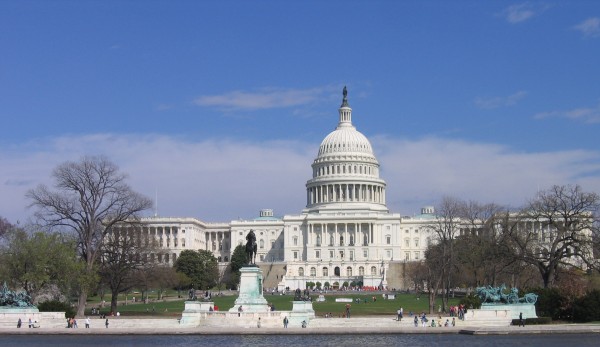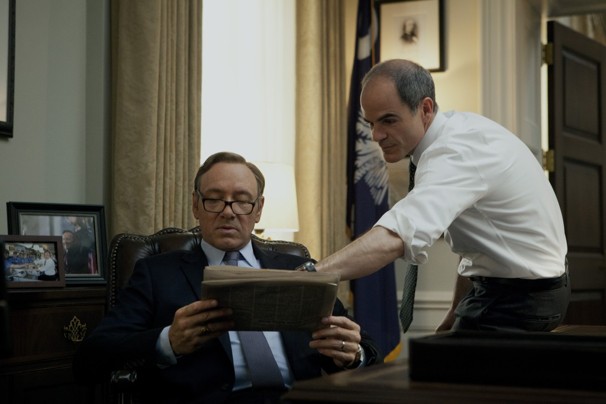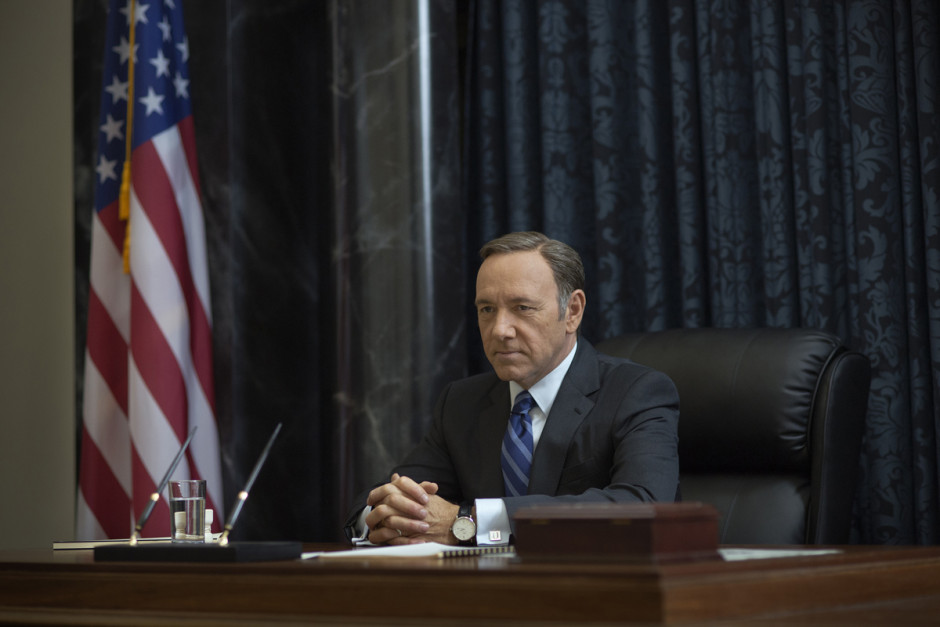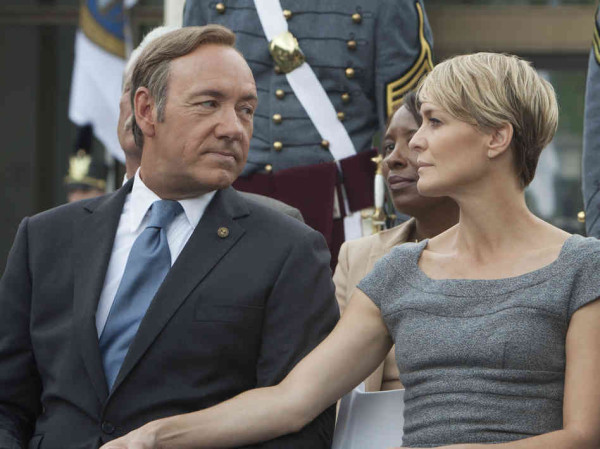I admit it: I’m addicted to House of Cards, Netflix’s polished political drama. Now in its second season, this is American television as it should be rather than the dismal wasteland it so often tends to be.
I came late to House of Cards, which is smart, literate and brimming with surprising and even shocking twists and turns. I missed the first season’s 13 episodes in 2013 because I was not a subscriber. My daughter, who was a member of Netflix’s streaming service, liked it, and at her urging, I watched the first two episodes about a month ago.
I was impressed as well as hooked, so I binge watched the entire series, including all of this year’s episodes, in about a week.

The series, set in contemporary Washington, D.C., is about politics and power and shifting relationships and alliances. If you had a jaundiced view of Capitol Hill, House of Cards — adapted from an eponymous British TV miniseries and developed by Beau Willimon — will confirm your bias in spades.
Its take on the game of party politics is harsh, dark and, ultimately, Machiavellian: you scratch my back and I’ll scratch yours. Politics is about mutual self-interest and reciprocity. You can add a dash of idealism if you’re so inclined, but at the end of the day, politics is basically Darwinian, nasty and brutish, and definitely not for the weak or timid of heart.

And there is no better politician than Frank Underwood (Kevin Spacey), an ambitious congressman from South Carolina who speaks with a Southern drawl and is guided by the principles of “ruthless pragmatism.” His attractive, soft-spoken and steely wife, Claire (Robin Wright), shares his philosophical outlook that everyone is useful yet eminently expendable.
They’re partners in life, but not necessarily faithful to each other. Underwood is drawn to a young, hard-driving reporter, Zoe Barnes (Kate Mara), who’s quickly climbing the greasy ladder of success. Claire, meanwhile, is involved with a photographer who’s working on one of her projects.
To his bitter disappointment, Underwood, the Democrats’ whip in Congress, is passed over for the position of secretary of state. He swallows his pride, but in the face of the president’s betrayal, he plots vengeance.
Underwood is a schemer, performer, manipulator and strategic thinker, always maneuvering for advantage. He deals a mean hand and is the consummate back room operator. Invariably, his adversaries do not even realize they’re been hoodwinked. His obedient, dedicated and competent chief of staff, Doug Stamper (Michael Kelly), performs the dirty tricks.
Spacey, a great actor, delivers a stunning performance as a duplicitous Washington pol. He’s the beating heart of House of Cards, which is blessed with an extraordinarily fine cast, from Wright and Kelly on down.
- Spacey and Robin Wright
The myriad issues that Underwood juggles to please his demanding boss, President Garrett Walker (Michel Gill), range from education to trade with China. As Underwood goes about his business, dodging metaphorical bullets, he runs into some tough and unyielding characters.
Remy Danton (Mahershala Ali), a crafty lobbyist, plays both sides. Raymond Tusk (Gerald McRaney) is an amoral billionaire whose business interests in China supersede his American patriotism. Peter Russo (Corey Stoll) is a philandering congressman who eyes a governership.
House of Cards, propped up by an unusually strong script, explores broad themes such as corruption, collusion, cronyism and political partisanship. Sometimes, its cynical and corrosive vision of politics and politicians is simplistic and borders on the absurd. But I suspect that behind the caricature lies a large and ugly grain of truth.

